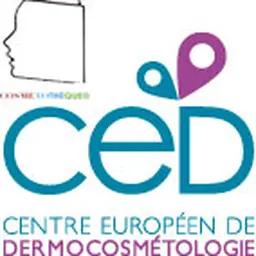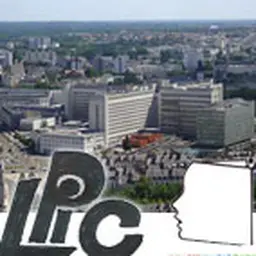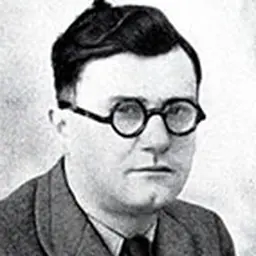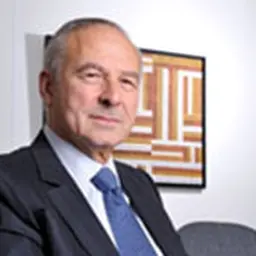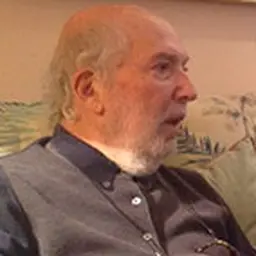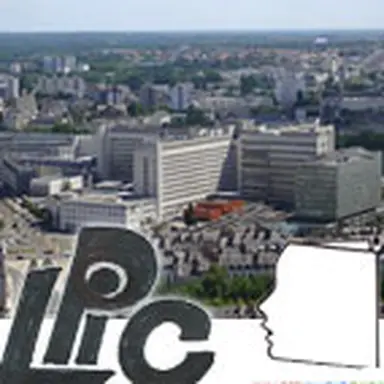
There is quality university research in the field of cosmetics. It is often done through specialized centres that are little known. After giving the floor to CERT, La Cosmétothèque® returns to them again to explain their approach and their field of research. Today, the LPiC in Nantes is in place. Jean Claude LE JOLIFF
The Laboratoire de Pharmacie industrielle et de Cosmétologie (LPiC) was born in the 1970s by splitting the galenic pharmacy laboratory into two entities, Professors Yannick De Roeck-Holtzhauer and Michel Rouzet not being the type to want to share the command of the same ship. At the age of 40, Yannick De Roeck-Holtzhauer was full of ambition for this very young laboratory that had just been set up under his impetus. If Professor De Roeck wishes to keep a foot in the pharmaceutical field through courses in galenic pharmacy (the art of combining ingredients to allow the dispensing of active ingredients), homeopathy and veterinary pharmacy, she also decides (and even especially) to devote all her energy to an ancient discipline like the world, cosmetology. If this one dates from Antiquity, industrialization, on the other hand, is very recent. Everything remains to be done in the area of regulation. The health scandals of the early 1970s (Baumol and Morhange talc cases) led to the Veil law of 10 July 1975. A discipline was born: cosmetic regulation. It is now a matter of teaching it! Professor De Roeck, a pedagogue at heart, seizes the opportunity and sees things in grand terms. We must roll up our sleeves and create diplomas, one for technicians (the famous DU of technician specialized in cosmetology) and the other for executives (the no less famous DESS of Cosmétotechnie). It is in a prefabricated structure located on the science campus that approximately 200 graduates will be trained. Cramped premises, intense heat from the sunny days and no less intense cold from the first frosts do not stop the candidates. These are selected in the famous building. Because of its small size, candidates wait outside, sometimes in full sun, which will be worth some of the memorable sunburn (irony of fate when we know the current theme of the LPiC). In order to be as efficient as possible, Yannick De Roeck, in a very modern vision of his profession, decides to back the teaching which is close to his research theme. In love with the Breton shores and the marine environment in general, Yannick is looking into a source of ingredients still little exploited: algae (the Biotekalg database is born, compiling for each algae multiple information concerning their composition) and is developing with her husband a number of protocols to demonstrate anti-aging effectiveness, particularly profilometry (ah, fingerprinting and counterprinting by students and statutory researchers to demonstrate anti-wrinkle effectiveness!), the effectiveness of toothpastes (determination of the degree of abrasiveness of the latter using a tooth brushing machine that has left memories to more than one student)… Gas chromatography, liquid chromatography, UV spectrophotometry and flame spectrophotometry were all techniques that were, moreover, means of verifying that the very young regulations were respected. Quality education legitimized by active research in the field allowed LPiC to quickly become known to the industry. In order not to be limited by financial problems, various associations (CAEC, IRVALMER) were created. Contracts with industry poured in.
In the 1990s, twenty years after its creation, the LPiC is strong enough and recognized enough to pass into the big league. A move to St Herblain (rue du moulin de la Rousselière) in a structure of more than 1000 m² confirms Mrs De Roeck's situation. Four researchers (Laurence Coiffard, Anne-Marie Leray, Françoise Peigné and Pierre Rivalland), two PhD students (Céline Couteau, Gwenaëlle Bourbigot), one technician (Alban Tacquet) and secretaries (Danielle Buisard and Céline Adjacin) share the premises with some thirty students recruited each year. The research themes are numerous, as numerous as the arms present in the structure. Stability of cosmetic ingredients (sweetening, lightening, anti-dandruff active ingredients), screening of marine ingredients to be recovered, implementation of alternative methods to test the safety of cosmetic ingredients (rabbits used on the science campus to demonstrate the safety of finished products have given way to tests in vitro ), the implementation of dosage methods (fluorine dosage…) are as many subjects which passionate the ones and the others. Before the cosmetics giant invented its famous slogan"because you're worth it", Mrs. De Roeck keeps her industrial partners"because she's worth it". Untiring, Yannick De Roeck runs the congresses, presenting the results obtained at the LPiC at the international level. Accompanied by one or the other (and always by her husband), she multiplies collaborations with Greece, Morocco, Serbia…
On May 31, 1999, Mrs. De Roeck died after several months of a disease which only saw her weaken in the last moments. Then begins a period of floating. The Faculty of Pharmacy of Nantes which, during years, followed from far the life of the laboratory, remembers to its good memory and wishes to see it repatriate the city center. It will not happen all at once. It will be necessary to go through a purgatory stage in premises made available by the CHU (Nord Guillaume-et-René-Laennec). Students will attend classes there with a view of… patient rooms. The research activity will be maintained there, in premises that are not very well adapted. Successive deans wish to support the original discipline of cosmetology in Nantes. However, the cards are rewritten and the staff paid out of LPiC's own funds are thanked. The teaching staff now includes three people (Laurence Coiffard, Françoise Peigné and Céline Couteau). Danielle Buisard continues to provide the laboratory secretariat.
Once the qualification to the functions of Professor in pocket, nothing more prevents Laurence Coiffard from taking the chiefdom of the service. The green tower located rue Gaston Veil in the city center welcomes us now. We have a splendid laboratory located on the 7th floor of the building with a 360° view on the roofs of the city. All our visitors marvel at this breathtaking panorama. Although the laboratory lost a lecturer (shortly before Ms de Roeck's death at the galenic pharmacy laboratory), it gained a technician in September 2004. After several years where we were both"Cuisinet, Torchonnet and Baptiste" to reuse the expression of a cousin, colonel of the French army, who found himself without personnel during his retirement, it is pleasant to rely on a very precious technical help. It is therefore with the help of our new technician, Eva Paparis, that we are developing what will become our research theme, namely topical photoprotection and more specifically methods in vitro to demonstrate the effectiveness of sunscreen products. Hundreds of products will have to be tested and thousands of plates of polymethyl methacrylate will have to be coated with sunscreen before our results are validated. The first publication on the topic concerns the determination of the effectiveness of the 18 UVB filters then authorised and commercially available, and the establishment of the dose-effect relationship for each of them. This theme which brings us closer to our original training (Laurence Coiffard and Céline Couteau are both pharmacists trained at the Faculty of Pharmacy in Nantes) allows us to combine public health and cosmetology. As Mrs De Roeck had previously done, we are firmly backing our teaching on our research. This is essential to us it seems difficult to teach a subject that we do not practice daily.
Times are changing. Graduates change their names. The DU of Cosmetology becomes a professional Licence and the DESS, a Master. The Cosmetology course is combined with the analytical control course (by Pr. Pégon) and the Biotechnology course (by Pr. Aubry) to become the Master2 Health Product Development and Control (DCPS). When Prof. Pégon retires, the Master's responsibility naturally falls to LPiC because of Laurence Coiffard's investment in this training.
In 2013, a DU of Socio-Aesthetics is born; it is the result of a project whose gestation lasted about ten years. This discipline which gives all its letters of nobility to cosmetology is a discipline which is particularly close to our hearts. Indeed, in parallel with teaching and through the University of Nantes Foundation, sufficient funds (94 500 €) have been collected to offer patients hospitalized at Nantes University Hospital (Hôtel-Dieu site), but also in a local hospital center and an EHPAD both located in Machecoul (44), free aesthetic care. On the Hôtel-Dieu site, many hospital services are concerned, particularly hemodialysis, ENT, stomatology, ophthalmology, gastroenterology… We have exceeded the 1144 different patients concerned. For some services, especially chronic haemodialysis, patients have already used the services of the socio-aesthetician multiple times (more than ten times). The average age of the persons concerned is 58. The choice was made from the outset to offer the various services to any person, man or woman, whatever the reason for hospitalisation, unlike other projects that specifically target the beneficiaries. This choice was relevant, since a certain number of men resort to what is proposed. However, it is already clear that it is overwhelmingly women who use the services of the socio-aesthetician. Over the past three years, more than 5,000 treatments have been provided. have been provided. Facial care and relaxation massage are still the most popular treatments. If we go into the details of the modelling carried out, we notice that it is the hand and face modelling which are the most numerous. To return to the DU of Socio-esthetics, it is important to specify that it falls within the framework of an original offer of training, since it is unique in France. It seemed extremely important to us to train nursing staff (nurses and orderlies) and beauticians in the emerging profession of socio-aesthetician, a profession that really fits into the logic of comprehensive patient care. DU holders must be able to work in hospitals and/or social settings (with people who are more or less desocialized, incarcerated) in order to provide aesthetic care in the broadest sense. The diploma program focuses on the knowledge of cosmetic ingredients, to allow an informed choice of the ranges that will be chosen in the practice of the profession of socio-aesthetician. Because of the specific contexts of these work situations, the risks of undesirable effects, especially allergic ones, should be minimized as much as possible.
In 2016, if we want to take stock, we can say that the LPiC is first and foremost the people who have succeeded one another to continue teaching and research in an original field not very well represented in France. Two department heads (Mmes de Roeck and Coiffard) took turns breathing their ideas and passions. Over the years, they are teacher-researchers who have made it possible to write about a hundred publications (including 45 on the subject of topical photoprotection) and books, as well as to present posters and oral presentations at national and international conferences… They are technicians who collected the results with meticulousness and precision. They are secretaries who have efficiently managed hundreds of applications at the Bachelor and Master level (thanks to Nathalie Calvi who is in charge of managing these applications). Hundreds of trainees (of all levels), PhD students (postgraduate or pharmacy) have contributed to the laboratory by searching for useful bibliographical references and by multiplying the determinations. Hundreds of graduates give us the pleasure of training interns and thank us for the training we offered them 10, 15 years ago or more… They are company founders, training managers, laboratory technicians… who come to share on Alumni Day (a day organized each year at the beginning of training in order to link young or less young graduates and newly enrolled students) their experience, their career path, their vision of the world of cosmetics. They are old people who come back to see us regularly, who exchange by mail or by telephone and who ask us for our opinion on such or such"burning" topic of current events… The site of The Conversation As such, it is a way of reaching a large number of"elders" and showing them that we have not lost our critical spirit over time.
The LPiC is a reassuring continuity for students who know they are preceded by several generations of students; it is also the fierce desire to maintain an exciting discipline within a Faculty of Pharmacy. The LPiC is above all a team, which, against all odds, has held up well, making it possible to maintain within the Faculty of Pharmacy of Nantes a teaching and a research related to the cosmetic field more than 45 years old.
|
Contribution made by Céline Couteau and Laurence Coiffard They manage the LPiC or Laboratory of Industrial Pharmacy and Cosmetology of the Faculty of Pharmacy of Nantes. Born in the 1970s from the split of the Galenic Pharmacy Laboratory from the Faculty of Pharmacy in Nantes, the LPiC has been part of a logic of development of topical forms intended for both pharmaceutical and cosmetic use since its creation. This laboratory is also involved in training since since the creation of the Master 2 diploma, having succeeded a DESS, hundreds of executives have been trained in Nantes. |


